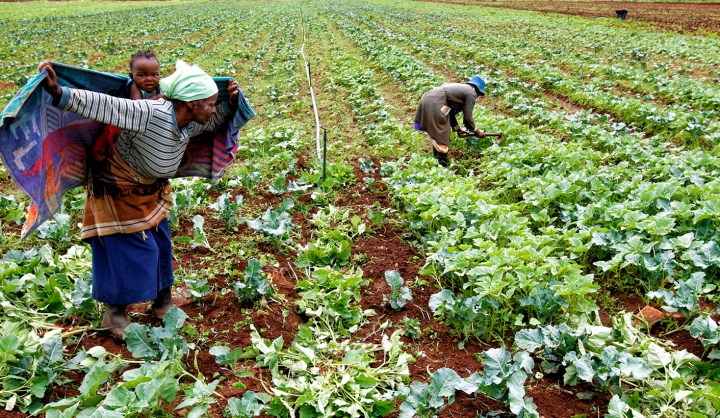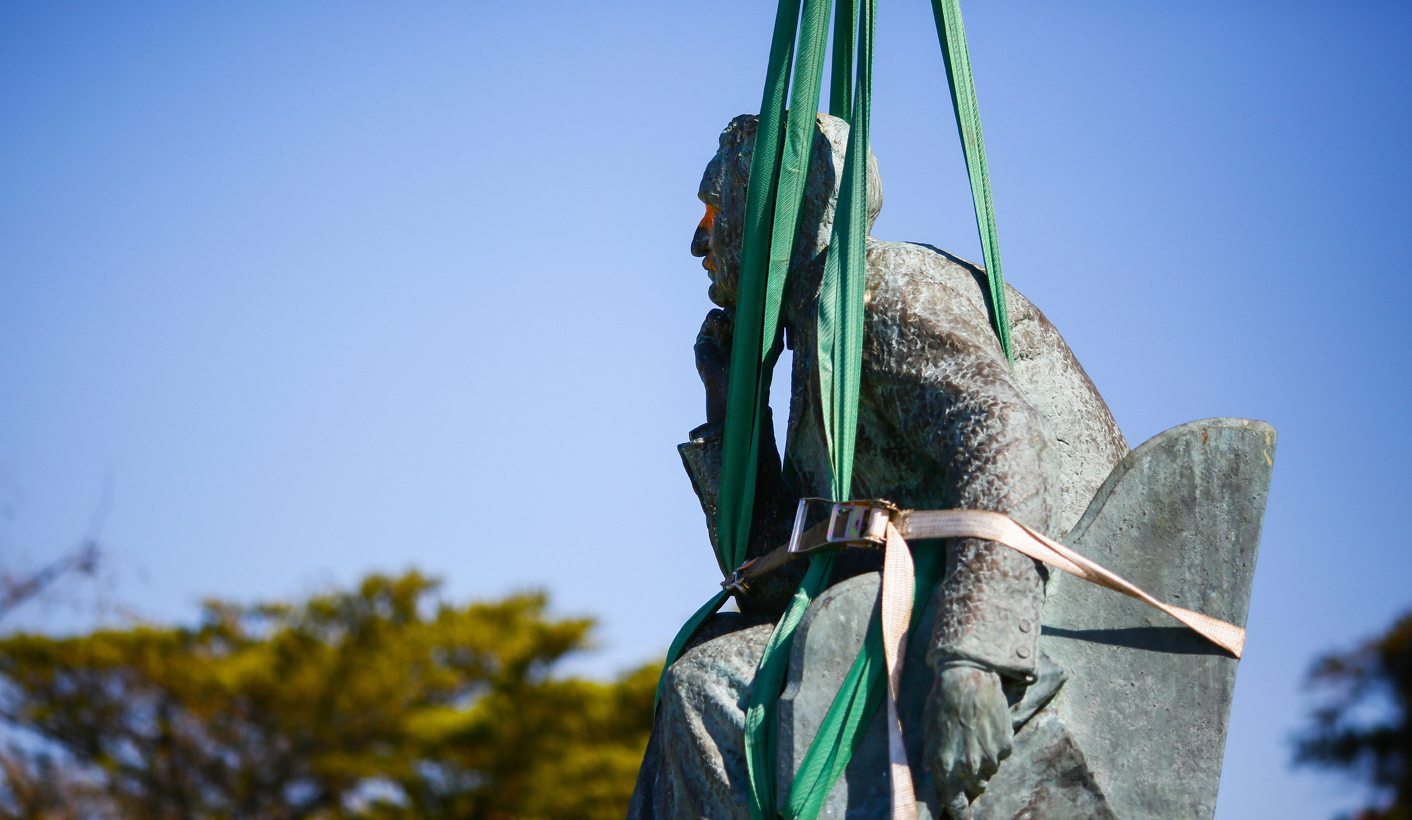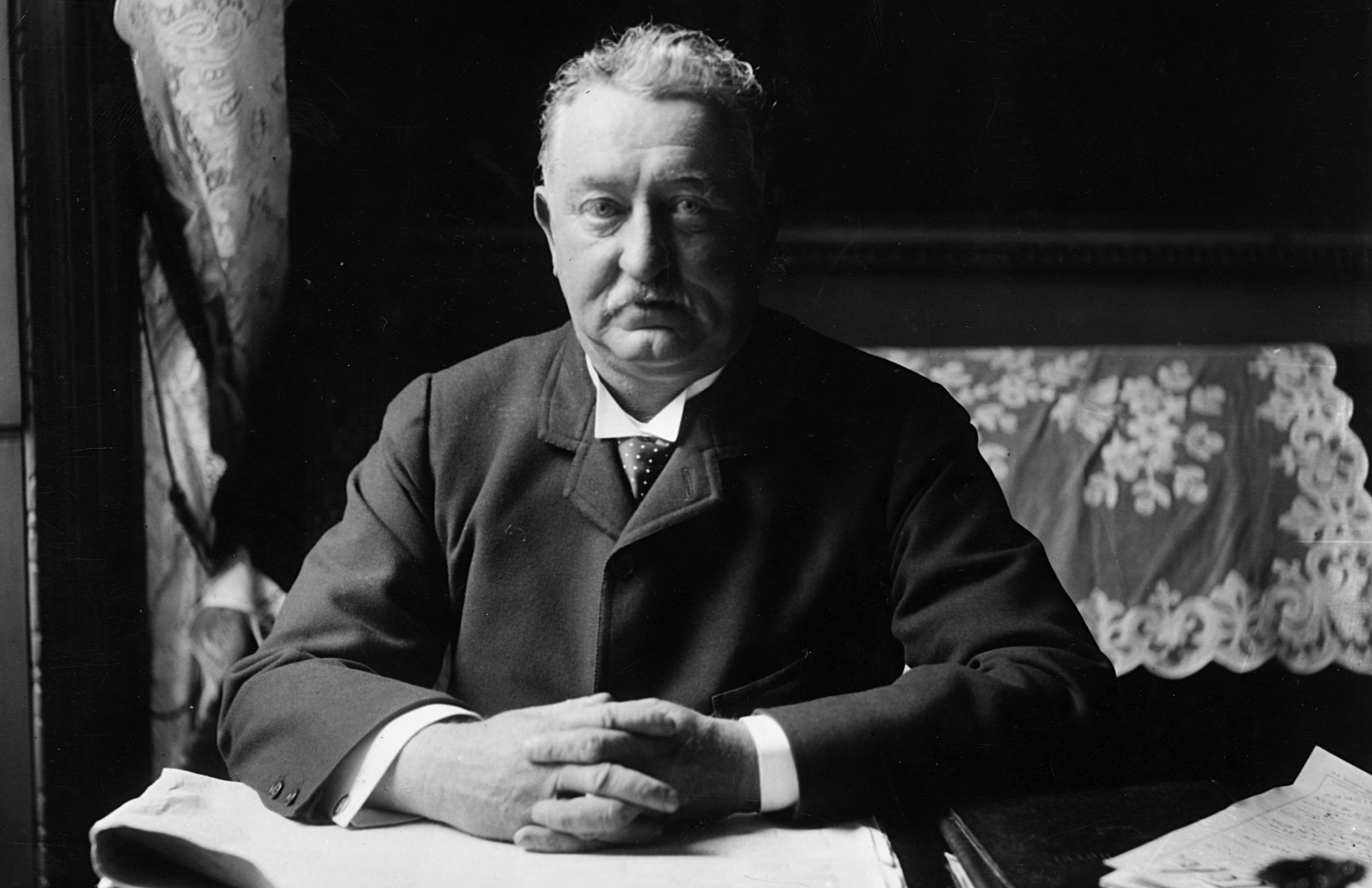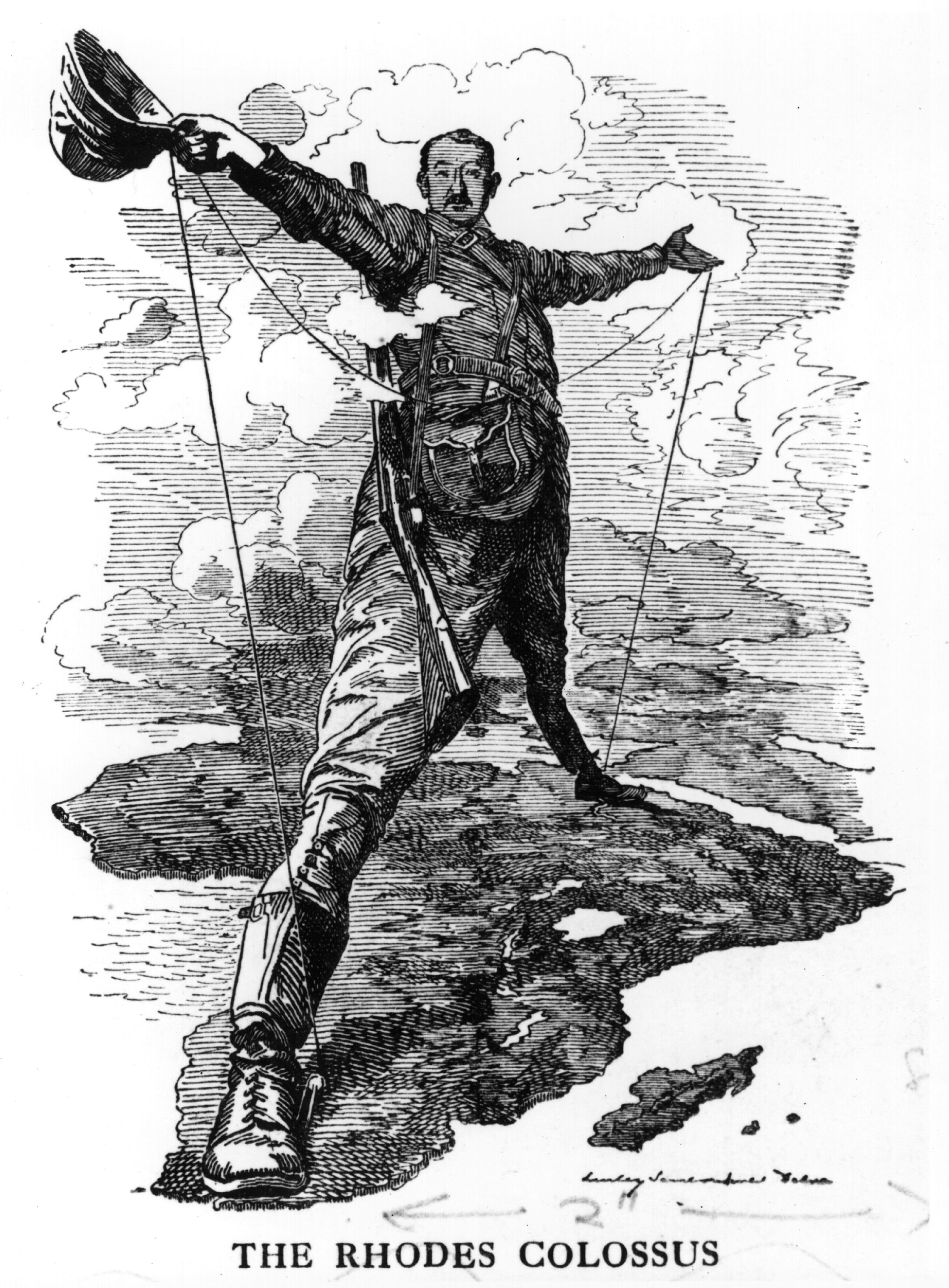RACIAL CAPITALISM OP-ED
Cecil John Rhodes’ vision is alive on white-owned farms in South Africa

On 26 March it was 121 years since the death of Cecil John Rhodes. All these years after he laid the foundation for modern South Africa, Black people are still subjected to manual/physical labour, to landlessness and to a racially unequal society.
In 1865, as slavery was abolished in the US, the Union general William Tecumseh Sherman issued an order to allocate land to newly freed families; 40 acres and a mule. For people coming out of slavery land was the ground for autonomy, dignity and meaningful freedom.
As the white reaction to making Black freedom a material and political reality in the South escalated, many of the families who had been granted land were dispossessed, but the idea of freedom in the form of 40 acres and a mule endured.
In the Cape Colony, Rhodes was a key figure driving African dispossession. In an 1894 speech to the Cape House Parliament, he pronounced: “Every black man cannot have three acres and a cow, or four morgen and a commonage right. We have to face the question, and it must be brought home to them that in the future nine-tenths of them will have to spend their lives in daily labour, in physical work, in manual labour.”
For Rhodes the African commons had to be smashed in order to force Africans into wage labour. This was the basis on which the system of racial capitalism was developed in what became South Africa. Well more than a century after Rhodes gave this speech there has been no meaningful programme of land reform, and farmworkers continue to face stock ownership limitations.

File photo – The Rhodes statue at UCT before being removed. Photo supplied.
In 2021, Monica Msingizane, a farmworker and farm dweller, explained to podcaster Musawenkosi Cabe that the control of farmworkers’ stock ownership by farm owners persists. She explained that “currently if you have 10 or 20 cattle, the farmer will tell you to decrease that number of cattle to only three cows”.
This is not just about cattle. It is an assertion of power and control rooted in private ownership of land, a form of ownership rooted in racialised dispossession. Most White-owned farms have maintained the racial, paternalistic and abusive worker-employer relationships that were characteristic of colonialism. The commercial farm reproduces what the economist Clara E Mattei calls the two pillars of capital: “private property and wage relations”. But this is not the realm of free labour as imagined by liberalism. On the contrary, both ownership and the wage relations are fundamentally mediated by race, and the history of violence that made and sustained race.
Indeed, the liberal market in land and agricultural labour rests on the fact that, as Judge Luleka Flatela explains, “South Africa is a consolidation of land robbery”.
Settler colonialism – Dutch and English – did not only seize land and place it under private ownership in order to exploit land for profit. It actively dispossessed African people from land in order to destroy African autonomy and force people into labour on their farms, plantations, mines and, in years to come, factories.
Some farm owners/employers are still referred to as “nkosi”/“baas”. There is no other workplace, outside of the farm environment, where the word “nkosi” is used interchangeably with the word “baas” (boss).
The impoverishment of Africans enabled the wealth of whites. This history has accumulated into the present, and is the key reason that wealth and poverty are so fundamentally racialised. Consequently, while the claim made by many white farm owners that they bought their land on the open market using their own resources may be true; it does not erase the fact that they were in a position to buy land while others were not as a direct result of the destruction of the African peasantry, the African pastoralist, the African commons and the creation of private land ownership under the control of white farming communities.

Circa 1900: British colonial statesman and financier Cecil John Rhodes (1853-1902). (Photo: Rischgitz / Getty Images)
We must also remember that resources, as defined by Filipina feminist activist Zephanie Repollo, “implies the capacity to decide and manage land and territories. This includes the resources to access farming inputs and tools, the ability to own land and thrive in territories; and available opportunities to access income or livelihood without having to fear scarcity.”
Read more in Daily Maverick: Farmworkers have a claim to the stolen land of their ancestors as reparation for generations of exploited labour
Using Repollo’s definition of resources, it is possible to make the case that South Africa’s history of colonialism and apartheid makes questionable even the very idea of private resource ownership as an indication of absolute personal achievement/merit or as unaffected by other social, economic, political and historical factors.
After all, laws such as the 19 June 1913 Native Land Act which limited African land ownership to 7% – and later 13% – through the 1936 Native Trust and Land Act of South Africa, were very clear about who should benefit from colonialism and who must suffer from it. The suffering was systemic by design and remains systemic today. Its undoing will, thus, also require a systemic approach.

Circa 1900: A caricature of Cecil John Rhodes standing on a map of Africa. (Photo: Hulton Archive / Getty Images)
Enduring racial practices
Rhodes’s pronouncements in his 1894 speech also continue to shape the present in terms of the nature of farm work in South Africa. White-owned farms in South Africa present very specific work and living conditions which rely on racial practices. This makes the survival of racism, the devaluation of African labour and the indignity of the workers possible for long periods and over generations.
Many of these farms operate via exploitative labour practices, where African people continue to work long hours of manual labour/physical labour while earning slave wages. They are also part of the capitalist machinery which ensures workers are producers on land, never owners of the land. They are a typical example of private land ownership along racial lines and the privileges enjoyed by those who have it in abundance.

Students protest outside Oxford University’s Rhodes house library for the removal of colonial-era statues on 9 March 2016. (Photo: Chris Ratcliffe / Getty Images)
The 2017 Land Audit reveals that white people still have privately owned land in abundance, according to the report “Whites own 26,663,144 ha or 72% of the total 37,031,283 ha farms and agricultural holdings by individual landowners”. These figures, of course, tell us nothing about the life histories and the lived experiences of the other people living and working on these farms – the farmworkers and farm dwellers.
I am always reminded of the words of Bhut’Ben, during a meeting with farmworkers and farm dwellers in Mooi River, KwaZulu-Natal, on 24 October 2021, held while standing outside, around a fire on a very cold day. Sharing the experiences of farmworkers and farm dwellers on white-owned farms in Mooi River, he said: “Umphakathi wa-la awukho esimeni esi-right ngokwe nkululeko, kuthiwa sisenkululekweni. Cha as’kabi khona thina. Sisagqilazekile” (“The community here has not experienced freedom. We are said to have freedom but no, we have not yet achieved it here. We are still in slavery”).
The abuse expressed by people like Bhut’Ben is worryingly unchecked by the government and is kept intact by the fears that farmworkers face on the farms due to the paternalistic character of work and life on these farms. This paternalism affects even the political life of farmworkers and farm dwellers, such as the decision to protest or join/form unions.
Organised abandonment
It is not surprising that the abuses experienced by farmworkers and farm dwellers are unchecked by the government. They are part of the wider organised abandonment that keeps the working class and impoverished landless, not just in the farms but in urban areas too. Ruth Wilson Gilmore describes “organised abandonment” as a process where “capital (large and small) and the state (municipal or greater) work together to raise barriers to some kinds of people and lower them to others”.

Any land redistribution programme which does not disrupt Rhodes’s vision, that Black people should be subjected to manual/physical labour, to landlessness, to a racially unequal society, is insufficient (Photo: EPA-EFE / Nic Bothma)
In South Africa organised abandonment sustains the intersection between race and class. We cannot make sense of this when we allow the land question to be captured by elite nationalism and its accommodation with the logic of capitalism. Patric Tariq Mellet’s work helps us think about how organised abandonment in South Africa in relation to farming, land access and land ownership is both a race and class question. He argues:
“The whole land question is in an elite bubble. It’s in the bubble of those who could afford to or were accepted by the banks to basically underwrite their lifestyles, through surrendering their bond, or taking out a bond or mortgaging their property for money at the bank… our agrarian scenario in South Africa is elite already. What you now have is emerging new elites, who want a cut of that same system. That isn’t restorative justice!”
All these years after Rhodes laid the foundation for modern South Africa, commercial farms continue to function in terms of the logic of racial capitalism. This manifests itself in different ways, but at the centre is the insistence on the “cheap labour” system and the racialised forms of labour that govern this system. Some farm owners/employers are still referred to as “nkosi”/“baas”. There is no other workplace, outside of the farm environment, where the word “nkosi” is used interchangeably with the word “baas” (boss). The word “baas” is less of an expression of the relationship between an employer and employee and more of an expression of the relationship that the employer has with the land, as the “ruler” of that territory (the farm). It is thus an expression of superiority.
Related to this, some of those referred to as “baas” casually refer to the farmworkers as “amaboy(i) na magirl(i)” (as boys and girls). This language is part of the broader context of the farm as a site of power and denies the people who are working the land the dignity they deserve; it is used as a language of power, and to avoid acknowledging workers as thinking human beings. Again, there is no other workplace, outside of the farm environment, where employers blatantly refer to adult employees as girls and boys. Rhodes was notorious for many things, and the language he used when referring to Black people was one of them. In line with referring to adults as “girls” and “boys”, in the Glen Grey Act he expresses: “Now, I say the natives are children. They are just emerging from barbarism.”
Any land redistribution programme which does not disrupt Rhodes’s vision, that Black people should be subjected to manual/physical labour, to landlessness, to a racially unequal society, is insufficient. So is one which does not emphasise that those who work the land (including farmworkers) should be its primary beneficiary. DM/MC
Yvonne Busisiwe Phyllis is the co-director of The Forge, a space for public engagement in Braamfontein, Johannesburg. She is also the author of This Land Is the Land of Our Ancestors, recently published by Tricontinental: Institute for research, a global South thinktank.




















 Become an Insider
Become an Insider
Comments - Please login in order to comment.